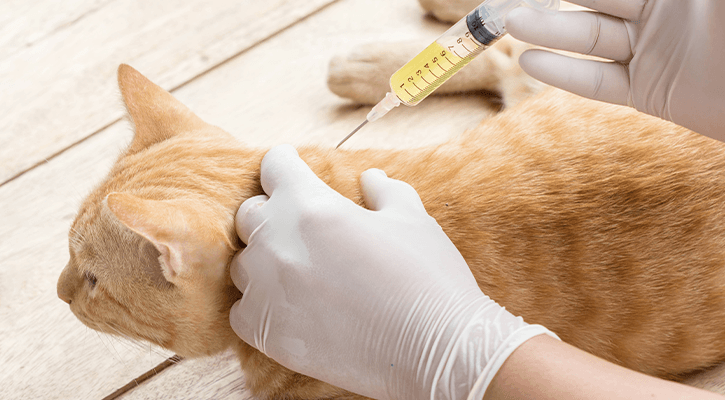
Young animals are like kids–it’s a never-ending job to keep them safe and happy. Vaccinating your pet is a relatively inexpensive but very important way to protect his or her health.
In addition to preventing many life-threatening illnesses, vaccinations can prevent diseases prevalent in wildlife and those that can be passed to humans. It’s important to administer vaccinations when pets are puppies and kittens because their young immune systems are still developing and need protection to stay healthy.
While any medical treatment involves some degree of risk, in the case of vaccinations, the benefits far outweigh any potential side effects. Adverse reactions are rare and usually mild and short-term when they do occur.
Which vaccines should your pet have? “Core” vaccines are those recommended—and possibly mandated by law—for most pets. Core vaccines include:
- Rabies (dogs and cats)
- DA2PPV – Distemper, Hepatitis, Adenovirus 2, Parvo and Parainfluenza (dogs)
- FVRCP – Feline Viral Rhinotracheitis, Calicivirus and Panleukopenia (cats)
Other “Non-Core” but HIGHLY RECOMMENDED vaccines include:
- Feline Leukemia (cats that go outdoors)
- Bordetella (also known as “Kennel Cough”) (dogs that socialize or go to grooming/boarding)
- Lyme (VERY prevalent here in SW Virginia, spread by ticks) (dogs)
- Leptospirosis (causes kidney failure, very prevalent here in SW Virginia, spread by wildlife) (dogs)
It’s also important to note that even pets who live primarily indoors should be vaccinated, as they can still be exposed to a
